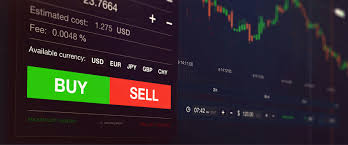The Ultimate Guide to Choosing a Forex Trading Broker 1809619422

The Ultimate Guide to Choosing a Forex Trading Broker
In the ever-evolving world of Forex trading, selecting the right broker can significantly impact your trading success. A quality broker provides the tools, resources, and support that traders need to navigate the complex currency markets efficiently and effectively. Whether you are a novice or an experienced trader, making an informed choice about your Forex trading broker is crucial. To assist you in this journey, we’ll dive deep into the essential factors to consider when choosing a broker and how forex trading broker ex-zar.com can help facilitate your trading needs.
Understanding Forex Trading Brokers
Forex trading brokers serve as intermediaries between retail traders and the interbank Forex market. They provide trading platforms where traders can buy and sell currency pairs. Brokers can vary widely in terms of their offerings, and understanding the distinctions is vital for any trader.
Types of Forex Brokers
There are generally three types of Forex brokers:
- Market Makers: These brokers create their own market for traders, often resulting in fixed spreads. They profit from the difference between bid and ask prices.
- ECN Brokers: Electronic Communications Network (ECN) brokers connect traders directly to the interbank market, offering lower spreads and faster execution times often at the cost of a small commission.
- STP Brokers: Straight Through Processing (STP) brokers combine elements of both market making and ECN trading. They directly send orders to liquidity providers, often using their liquidity to fill orders in quick succession.
Key Factors to Consider When Choosing a Forex Broker
1. Regulation
Regulation is perhaps the most important factor to consider when selecting a Forex broker. A regulated broker is held to high standards of conduct and transparency, offering protection to traders. Look for brokers regulated by reputable authorities such as the FCA (UK), ASIC (Australia), or SEC (US).
2. Trading Platforms
The trading platform is the gateway to the Forex market. It should be user-friendly, reliable, and equipped with various tools that enhance your trading experience. Popular platforms include MetaTrader 4 and MetaTrader 5, which offer robust charting tools and support for automated trading.
3. Spreads and Fees
Understanding the costs associated with trading is crucial. Spreads can vary significantly between brokers. A narrow spread is often a sign of a competitive broker, allowing you to keep more of your profits. Additionally, be aware of any hidden fees, such as withdrawal fees or inactivity fees, that could affect your overall trading costs.

4. Leverage
Leverage allows traders to control larger positions with a smaller amount of capital, amplifying both potential gains and losses. Different brokers offer different leverage ratios; some may offer up to 1:500. While high leverage can increase profits, it also entails higher risk, so choose levels that align with your risk tolerance.
5. Customer Support
Reliable customer support is essential, especially for new traders who may require guidance. A good broker should offer multiple channels of support, including live chat, phone support, and email assistance. Availability of support in your preferred language can also be a significant benefit.
6. Educational Resources
For those new to Forex trading, having access to educational resources can dramatically enhance your learning curve. Look for brokers that provide webinars, tutorials, and market analysis to help you understand trends and develop effective trading strategies.
7. Reviews and Reputation
Before committing to a broker, researching online reviews and testimonials can provide insight into the experiences of other traders. Look for patterns in feedback, both positive and negative, to gauge the overall satisfaction level with the broker in question.
How to Get Started with Forex Trading
Once you’ve selected a broker, getting started involves a few straightforward steps:
- Open a Trading Account: Complete the registration process by providing necessary personal information and financial documentation.
- Fund Your Account: Deposit funds using one of the supported payment methods. Make sure you understand any associated fees.
- Download the Trading Platform: Most brokers offer a downloadable version of their trading platform or a web-based version. Familiarize yourself with the tool’s functionalities.
- Practice with a Demo Account: Many brokers offer demo accounts that allow you to practice trading without risking real money. Use this opportunity to develop your strategy.
- Start Trading: Once you feel confident, begin live trading while carefully monitoring market conditions and managing risk.
Risk Management in Forex Trading
Forex trading is inherently risky, and effective risk management is vital for long-term success. Here are some strategies to mitigate risk:
- Use Stop-Loss Orders: Always employ stop-loss orders to automatically close positions at predetermined levels, limiting potential losses.
- Position Sizing: Determine how much of your capital you are willing to risk on a single trade and position size accordingly.
- Diversify Your Trades: Avoid putting all your capital into one trade. Diversifying can help spread risk across different currency pairs.
Conclusion
Choosing the right Forex trading broker is a foundational step toward successful trading. Every trader’s requirements are unique, but by assessing brokers based on regulation, trading conditions, support services, and educational resources, you can find one that meets your needs. As you begin your trading journey, remember to prioritize risk management tactics to safeguard your investments. With the right broker and a solid plan, you can navigate the Forex market with greater confidence and skill.






